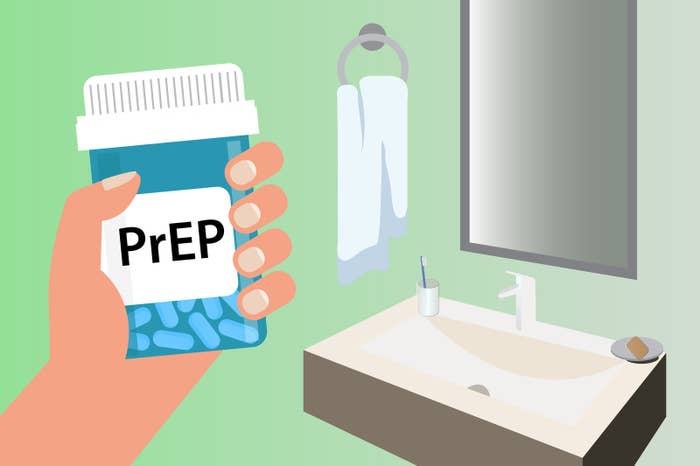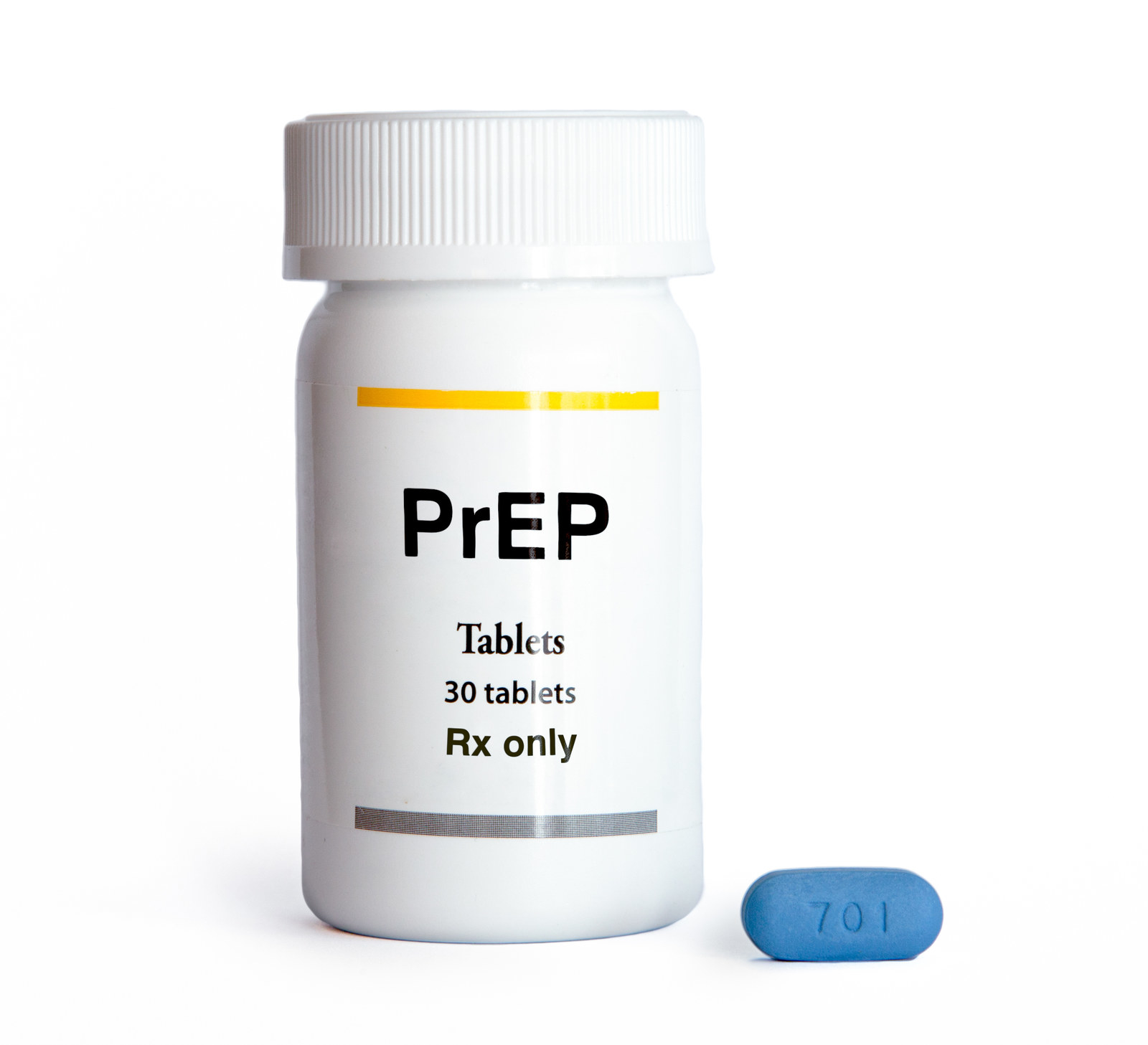
A major new report from Scotland's largest HIV policy organisation has recommended that pupils in secondary schools are taught about PrEP, the drug regime that prevents HIV.
In a wide-ranging study of both the current state of sex eduction in Scottish schools and the awareness among pupils of sexual health issues, HIV Scotland has also called for the law to be changed so that all schools would have to provide relationship, sexual health and parenthood (RSHP) education.
Such classes, according to HIV Scotland, should also include "information on LGBT relationships".
"There should be a 21st century understanding of HIV, with resources providing information on the latest HIV prevention and treatment strategies, for example references to the availability of PrEP," the report says.
"There have been significant advances in HIV treatment meaning that people
diagnosed with HIV and on effective treatment cannot pass the virus onto
others, and the introduction of PreExposure Prophylaxis (PrEP) which can
stop people from becoming infected. Lessons must equip young people with
this information."
It continued: "Legislation should be introduced to the Scottish Parliament for RSHP lessons to become a compulsory component of the curriculum, in order to guarantee access for every young person in Scotland."
HIV Scotland also called for sexual health professionals to "have a visible presence within schools".
The research, which included an overview of other studies, painted a bleak picture of the level of understanding among young people in Scotland regarding HIV, sex and sexually transmitted infections. Three in five teenagers, for example, said they do not remember receiving any information about HIV in school.
This is despite the fact that every month two Scottish 15-24 year olds are diagnosed with the virus, and many more contract it without knowing. And since 2001, the number of people living with HIV in Scotland has doubled.
A year ago, HIV Scotland organised a roundtable discussion for those involved in sex education to discuss the problems they encounter, the results of which are set out in the report: that there is a lack of consistent monitoring of RSHP classes; insufficient time for teacher training in the subject; LGBT pupils and their needs are being ignored; bullying of LGBT pupils is inadequately combatted; and sex education is not being given proper priority.

HIV Scotland also surveyed every local authority in the country regarding sex education services, the findings from which also depict patchy provision, with many pupils left ignorant of potentially life-saving information. A third of local authorities said that HIV was not taught in RSHP classes.
In April, the Scottish Medicines Consortium recommended that PrEP be provided by the NHS for all those at risk of contracting HIV, but knowledge of the prevention regime remains low.
The recommendations in HIV Scotland's report were welcomed by a Scottish secondary school teacher, who wished only to be referred to as Simon, and who is living with HIV.
"These are brave and necessary suggestions," he said. "Teaching about HIV and PrEP and how to prevent contracting HIV shouldn't be a brave decision in the 21st century but sadly it is. The issue of HIV prevention has become an incredibly political, loaded target."
As a result, he said, the provision of sex and HIV education in Scottish schools is woefully lacking. "It becomes marginalised, it becomes watered down with teachers that are either very uncomfortable talking about sexuality or terrified about a backlash. When you join those two together it usually leads to very poor delivery."

The teacher said he has seen lesson plans "promoted by councils from Glasgow to Falkirk which address issues of HIV as half a sentence, two-thirds of the way down the plan, usually on a discussion about going overseas. Placed after getting your passport and arranging for the taxi to get to the airport."
Pupils are therefore unaware of crucial information regarding sexual health, he said.
"The sad horror is I see a level of knowledge that is more reminiscent of 1982 than 2017. Where people don't understand how the disease is transmitted. I've heard kids and adults say, 'Oh you can catch it from sitting on a toilet.' Then there's the belief that it's an old gay man's disease. When you point out that the majority of transmissions are 18-25, they look at you and go, 'But how?'"
Pupils think if you have HIV you can't even kiss or touch, he said. And when they discover there is treatment, there is no understanding that the virus remains a life-changing condition. And almost no one knows about PrEP. "If it was 10% you'd be incredibly lucky," he added.
Stigma and ignorance of the virus is such that Simon does not disclose his HIV at his school. "I'd be terrified of demonstrations because people would overreact," but former pupils have revealed to him that they've contracted the virus.
"One said, 'I remember you saying a lot of things but being very careful about it and I really wish I'd listened to you a lot more, because we wouldn't be having this conversation.' My response to that was, 'I wish the same thing more than you would know.'"
What is needed, said Simon, is young people with HIV going into schools to tell pupils about their experiences. "That would be one of the most effective ways of getting the message across. Reports are one thing. Implementation is a completely different thing."
The recommendations in the report are likely to trigger controversy, something HIV Scotland anticipates. Regardless, said Nathan Sparling, its head of policy and campaigning, "The treatment and prevention of HIV has changed so much, and that's why we're calling for schools to teach the 21st century aspects of HIV, which are a wide variety of prevention measures, which include PrEP, and which will help us eliminate new transmissions."
Making sex education compulsory may not please some people, but, said Sparling, it is vital.
"This is a public health issue, about making sure our young people, no matter what school they go to and where in the country they are, have a minimum knowledge in order to be able to protect themselves from HIV infection and other sexually transmitted infections."
Shirley-Anne Somerville, minister for further education, higher education and science, told BuzzFeed News: “We are committed to helping our children and young people build positive relationships as they grow older and will carefully consider this report from HIV Scotland.
“Relationships, Sexual Health and Parenthood education is an integral part of the health and wellbeing curriculum and it is for local authorities and schools to decide how best to deliver the curriculum based on local needs. As well as working with the Time for Inclusive Education (TIE) Campaign to improve the inclusive approach to sex and relationships education, we are undertaking a national review of personal and social education.”
